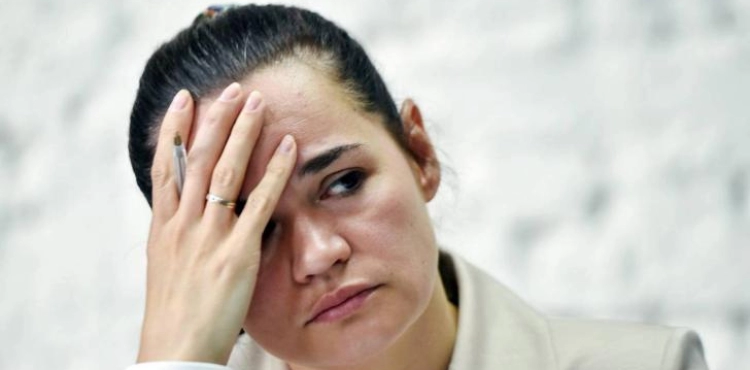The opposition candidate for the presidential elections in Belarus, on Monday, rejected the official results, asking the president to give up power, the day after the polling process and a violent crackdown on anti-government demonstrations.
Svetlana Tikhanovskaya, who appeared within a few weeks as an unexpected rival to President Alexander Lukashenko, who has ruled Belarus for 26 years, denounced the fraudulent elections, after announcing the outgoing president´s victory with 80.8% of the vote, according to new results published Monday afternoon.
"The authority should think about how to hand us over to power. I consider myself a winner in these elections," said Tikhanovskaya, 37, a recent political career, at a time when she got 10.09% of the vote, according to official results.
It accused the regime of "staying by force" in power, after the suppression of demonstrations in dozens of cities on Sunday night, Monday, especially in Minsk, where thousands of demonstrators were exposed to stun grenades and rubber bullets.
The opposition did not demand the Belarusians to go out.
Meanwhile, calls for demonstrations follow on Monday at 19:00 (16:00 GMT) in Minsk on the messaging app Telegram, as well as calls for a strike on Tuesday.
And a spokeswoman for Tikhanovskaya announced on Monday that the candidate would not participate in the demonstrations.
Three thousand detainees
And the Ministry of Interior announced the arrest of about three thousand people across the country and the injury of about 50 civilians and 39 policemen in 33 cities on Sunday night, Monday.
The "Viasna" organization for the defense of human rights indicated that the information regarding the death of a person during the demonstrations, which it had announced earlier, "is not confirmed."
Abroad, European Commission President Ursula von der Leyen Monday condemned the repression and demanded an "accurate" count of votes in the presidential elections, while Poland called for a European Union summit in this regard.
Germany, which currently holds the presidency of the European Union, warned against re-imposing European sanctions on Belarus, against the backdrop of the presidential elections.
And NATO expressed "serious concerns" about how to hold the presidential elections in Belarus, which was won by outgoing President Alexander Lukashenko.
On the other hand, Russian Presidents Vladimir Putin and Chinese President Xi Jinping congratulated Lukashenko, even though Lukashenko accused his traditional Russian ally in recent weeks of wanting to implicate his country and support the opposition, especially by sending mercenaries.
Commenting on what happened the night before, the Belarusian president considered that the demonstrators were "sheep" marching from London, Prague and Warsaw, stressing that he would not let the country "be torn apart."
In 2010, also after the presidential elections, opposition demonstrations were severely suppressed.
Lukashenko also accused foreign powers of cutting off the Internet in Belarus. The opposition considers that it was the authorities who cut off the Internet in the context of the crackdown.
Alexander Baunov of the Carnegie Institute in Moscow believes that if the protests continue, "the repression will also intensify," and will be accompanied by "harsh prison sentences."
On Sunday evening, thousands of citizens took to the streets to denounce the fraud, considering that the opposition candidate, who was unknown to the public a few weeks ago, is the winner in the elections.
Scenes published by opposition media showed two policemen firing rubber bullets and stun grenades at the demonstrators, causing many of them to be wounded, especially in the faces.
"I am ashamed of what the security forces are doing," Sergey, a 45-year-old iron sheet worker, told France Press. "I served in these forces!"
The election campaign was marked by an unprecedented mobilization in favor of Svetlana Tikhanovskaya, who replaced her husband, a vlogger, in the race for the presidency after his arrest in May.
And she called on her supporters to vote massively, by wearing white bracelets and taking a photo of their ballot, to make fraud more difficult.
On Sunday, long queues formed in front of many polling stations.
"With these lines ... it is difficult that Lukashenko won!" Said Lyubov Smirnova, a 65-year-old retired from Minsk.
At the end of the election campaign, the authorities redoubled their efforts to prevent the rise of Tikhanovskaya, by arresting about ten of its collaborators.
Before she ran, Lukashenko´s main opponents were ruled out by arresting two and leaving a third for exile.
Tikhanovskaya´s influence escalated against the backdrop of increasing economic difficulties, exacerbated by tensions with Russia, which is accused of seeking to make Belarus a subsidiary, and how Lukashenko deals with the Covid-19 epidemic, which he described as a "psychological disorder."












